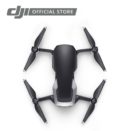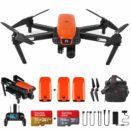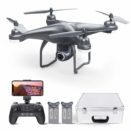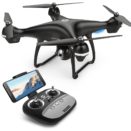The personal drone industry has seen an incredible influx of interest over the last decade. Thousands of new drones make their maiden flights each day, and the number of active pilots of unmanned aerial vehicles (UAVs) is increasing at a drastic rate.
While this is all good news for drone manufacturers, drone retailers, children (and adults) who have an interest in mechanics and/or aviation, and industries that can use drones to their financial and tactical advantage, the prevalence of drones darting through the sky (often in residential neighborhoods and commercial areas that are understandably sensitive to such devices) does raise a few important questions.
In this article, we’ll discuss the issue of needing a drone license for piloting a drone. There isn’t a simple “yes” or “no” answer to this query, as regulations and requirements differ depending on the location in which the drone is being flown, and the purpose of the flight.
Flying a Drone Recreationally
The Federal Aviation Administration (FAA) has provided clear guidelines regarding pilot drone license requirements for flying drones recreationally. If you fly your drone indoors, you don’t need a remote pilot’s license and you may not even need to register your drone with the FAA.
If you fly your drone outdoors for recreational purposes then you will need to register the device if it weighs more than 0.55 pounds. At this point, you have two options for flying your drone recreationally. According to the FAA, you do NOT need to obtain a remote pilot license under the following conditions:
- You are flying the drone purely as a hobby and for solely recreational reasons.
- You follow the guidelines set forth by your local community.
- You keep your drone within a visual line-of-sight.
- Yield to any and all manned aircraft.
- Remain at least five miles away from airports and air traffic control towers.
- Your drone must not weigh more than 55 pounds.
You can also fly your drone for recreational purposes if you or someone monitoring you has a valid remote pilot license. The restrictions for such recreational flights are as follows, according to the FAA website:
- You must register your aircraft as a non-model, unmanned aerial vehicle.
- You must adhere to the FAA’s Small UAS Rule, Part 107.
It is an absolute requirement that if you operate your drone under this second set of rules that either you or someone supervising you has a valid remote pilot’s license. Long story short, if you plan to fly your drone in a field, park, or other areas where manned aircraft aren’t constantly passing through and there is no immediate threat to power lines or people then you do not need a remote pilot’s license, although you will likely need to register your drone and ensure that you are only using the device as a hobby.




